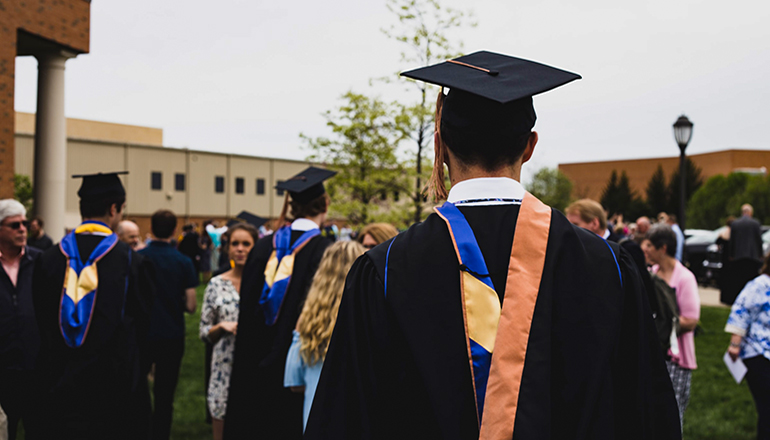A new survey of 28,000 high school seniors from the nonprofit YouthTruth found more than one in four changed their life plans during the pandemic.
In 2019, 25% of students said they planned to attend a two-year college. Now, it has dropped to 19%.
Geoff Heckman, counseling department head for Platte County High School, noted while college is a great opportunity, it may not be for everyone. He said other options, such as workplace credentials or internships, can lead to great careers as well. He added schools and school counselors are also resources if families have questions or want to talk things through. “There is not one road or one direction that fits every single student,” Heckman explained. “But there is a best direction for each student. And so, we want to ensure that no matter where they’re headed after school, that we’re putting them on the steps and giving them the tools that are best and right for them.”
The report showed the disruption in post-high-school plans has been more pronounced for black, brown, and indigenous students, those who are LGBTQ+, and low-income students.
More seniors surveyed said they are unsure of their next move, and financial stress plays a big part, as well as battles with anxiety and depression.
Jennifer Wilka, executive director of YouthTruth, a nonprofit based in San Francisco specializing in surveying students, said many students are weighed down by grief and struggled to adapt to distance learning. “It feels to them as if time has stopped,” Wilka stressed. “They have lost their study skills; a lot of them have lost focus, lost motivation, lost people that they cared about. So, those are trends that come through loud and clear.”
The survey found fewer kids are connecting with their school counselors to talk about college or financial aid.
Wilka hopes states will better fund schools, so they can increase their counseling staff and offer more targeted interventions for groups of students having a hard time getting back on track.
(Photo by Charles DeLoye on Unsplash)


